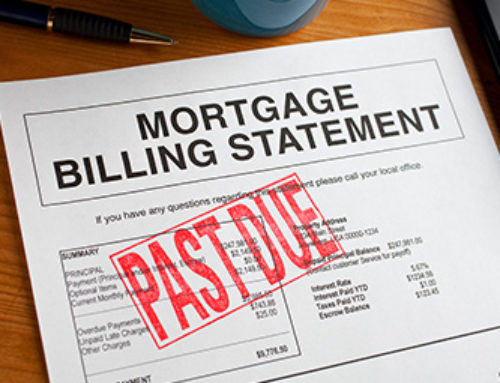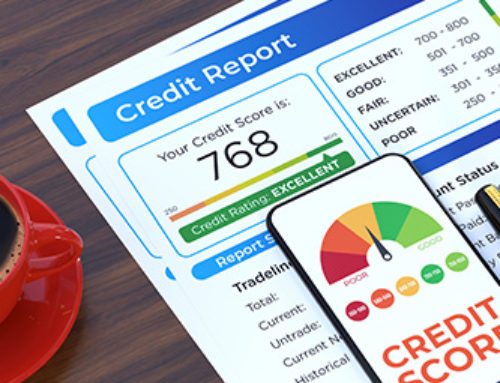Susan shows that no matter how much you earn, you can pay off your debts.
Sometimes insufficient income hinders debt repayment. This can result in spending more than what you earn and leaving large amounts of credit on your credit cards.
It’s easy to say that you will start to reduce your debt as you earn more, but what if you don’t? You can accumulate interest and be inundated with debt.
As of 2020, the average American will have a credit card balance of $6,200. Over the past decade, lenders have also increased credit limits by 20%, making it easier for consumers to accumulate more debt than they can repay.
Susan knows the cycle of high balances and unmanageable debt all too well.
Susan’s finances have been wrecked by college debt and divorce …
After mortgages, student loans take the consumer debt pie. MeasureOne’s private student loan report shows Americans owe $ 1.5 trillion in student loans. While some can consolidate their debts, not all are so fortunate. Susan is one of many Americans who went to college on credit – raised nearly $ 150,000.
Soon after graduating, she moved to Louisiana to work, hoping to start over, but tragedy struck. Hurricane Andrew hit, and she lost everything.
A woman looks out the window. “I owed a lot. Then I got my first job in Louisiana, and then I had to pay for accommodation. Then Hurricane Andrew came, and I lost my house and most of what I have. All I had was my car, and I still owed it. I had a very difficult start, and then it snowed. I was never able to get out of it completely,” explains Susan.
A few years later, Susan divorced, further increasing her debt. In her words
“My husband and I got a divorce (now we’re together again), but at the time, I was paying on my own, and I was stressed. I was really mad at myself for getting into debt. ”
Divorce can be expensive because it involves many costs. Legal fees, court-required payments, and reestablishing your own life come at a financial cost.
Her debt has grown up to $40,000 …
In addition to facing the financial pressures of not being able to borrow student loans and divorce, Susan still had material problems. She had between 10 and 11 credit cards and used them to buy everyday items and essentials. However, when Susan made relatively large purchases, she ignored the effects of the growing interest. Susan gave an example saying:
“We needed a lawnmower, so we bought it from Lowes, then it cost us a hefty amount of dollars when we paid the interest, then we needed a place to put the lawnmower.”
Consumers often make the mistake of buying items with their credit cards without a budget or a clear payment plan. It becomes easier to get used to spending and buying things that don’t add value to you in the long run when you do this. This can lead to high balances, which are increasingly difficult to repay.
“The funny thing is that all of those things are gone. The little cabin we bought to put the mower inside has rusted and died, the mower is dead, and nothing was left to show for all that. But you know, I was in debt. ”
Until she accidentally ran into Reb0und …
Debt is easy to ignore, especially when there is no tangible solution in sight. The positive side is that there is always a way out; sometimes, it finds you when you least expect it.
When asked how she found out about Reb0und, Susan replied, “I think I found it on the Internet. I was at school. I am a teacher, and in my planning phase, I was stressed about money. ”
She had no idea that her financial burden would soon go away.
Susan thought Reb0und was too good to be true …
Susan found it hard to believe that a program could help her reduce her debt without any hidden tricks or gimmicks. However, she gave Reb0und a chance and signed 11 cards for a debt management program.
She was excited about the start and has seen progress in two years.
“When the first bill was paid, I thought, my God, my God, I’m really going to do it… My wish was to have some extra money so that I could pay it off faster. I think I ended up spending $ 3,000 in taxes because I wanted to finish. ”
In four years, she made lemonade with lemons …
Many agree that teachers are poorly paid, especially if they are at the bottom of the salary scale. In the bottom 10%, they can only earn $ 37,000 per year, while the top 10% could earn up to $ 97,000. Factors that affect a teacher’s salary include status, the class they teach, the school they work in, and their level of experience. For those at the bottom of the spectrum, paying over $ 30,000 in debt can seem impossible.
Reb0und started the process by reducing or eliminating the interest rates on each card.
“Some were at 22%, reduced to 10. Others were about 15 and knocked down to 0. So, I knew it would make a big difference once you start negotiating,” says Susan.
With little or no interest to pay, it was easier to develop a simple and less expensive payment plan. In the fourth year, Susan was ready to pay off her balances. She explains that she feels an incredible sense of relief after finally paying it off.
Susan learned essential skills in dealing with money …
One of the most valuable lessons Susan has learned from the Reb0und Program is how to spend more consciously. For her, that meant focusing on the essentials and avoiding habits that could make her appropriate again.
Susan has adopted positive habits, such as using only credit cards to buy what she can afford and paying off balances before the end of each pay period.
“Now we only have one credit card, and we only use it when we have money in the bank account to buy whatever we want to buy anyway, so we buy our food with the card, then we take the money straight from the bank and completely pay off the card. Whatever we put in there, we pay it immediately. ”
She adopted the same practice for paying medical bills. Considering that a third of credit card users are in debt due to medical bills, this is a great way to avoid it.
Her mission is, therefore, to share her new knowledge …
Schools don’t teach financial education unless you take a finance-related course. However, Susan took the initiative and stayed committed to the cause.
“Since joining the program, I have taught other people how to improve their creditworthiness. I am a teacher, I am 50 years old, but I teach a lot of young children. I pass these lessons on to my students. ”
Susan also emphasizes the importance of not borrowing for retirement. Many Americans like to retire by age 67 but often cannot afford it. Ameritrade surveyed 2,000 adults aged 40 to 79 to see if they were on track to retire. The survey found that 41% of 40-year-olds and 28% of 60-year-olds saved less than $50,000 for retirement.
She explains, “I always tell them not to borrow for their retirement. I did it twice, thinking in my head that what I was going to do was so important that I had to do it, I could have retired this year, but I had to work 14 more years … ”
This is golden advice if you are planning to retire early.
Reb0und Wasn’t Too Good to Be True …
When asked how Susan felt after the last payment, she replied, “I wasn’t sure it was real. I was happy I had learned a lot by that time about how not to do things just by reading the things you posted and reading the stories of others. I knew I would never bring myself back into such a situation. ”
Here is her advice for those skeptical about getting help.
“Trust the process. It really works. Know that people have been in your situation and have succeeded in setting themselves free from debt.”
Debt can have a happy ending when you get professional help. If you can relate to this story and are also battling debt, you are not alone. Speak to one of our counselors today to see how they can help you.



